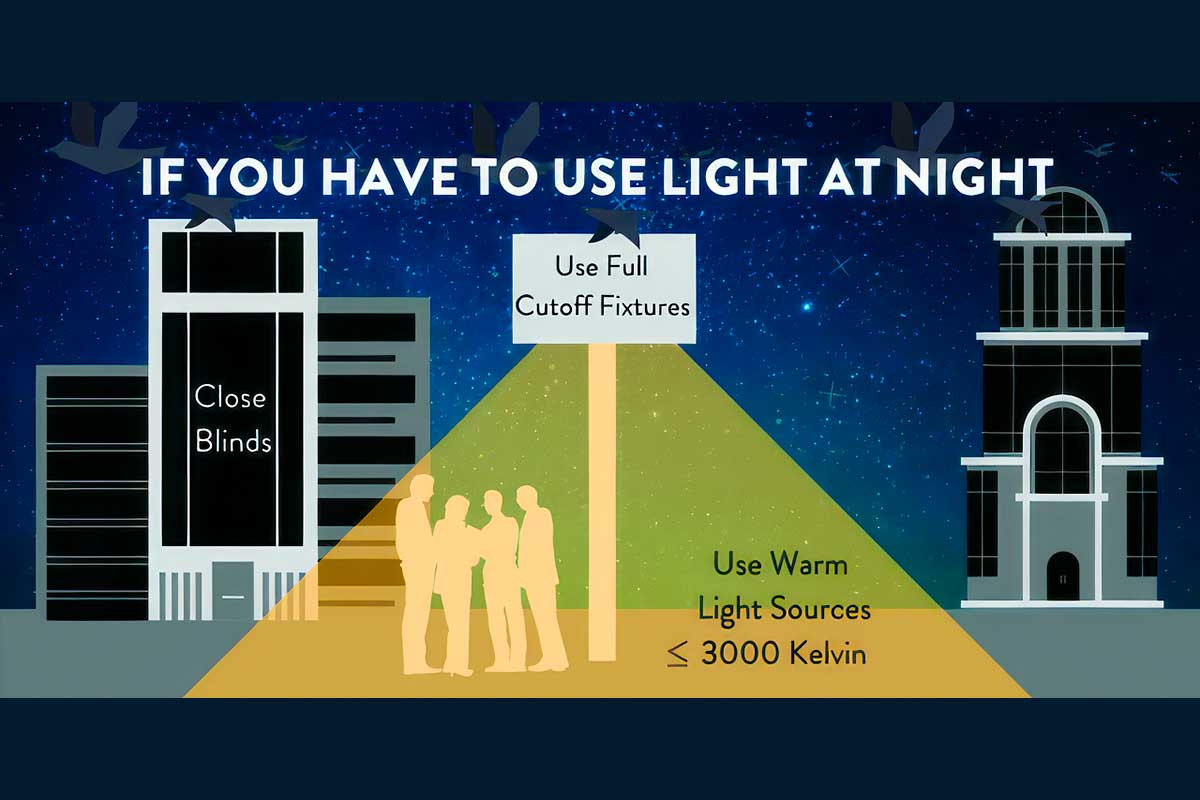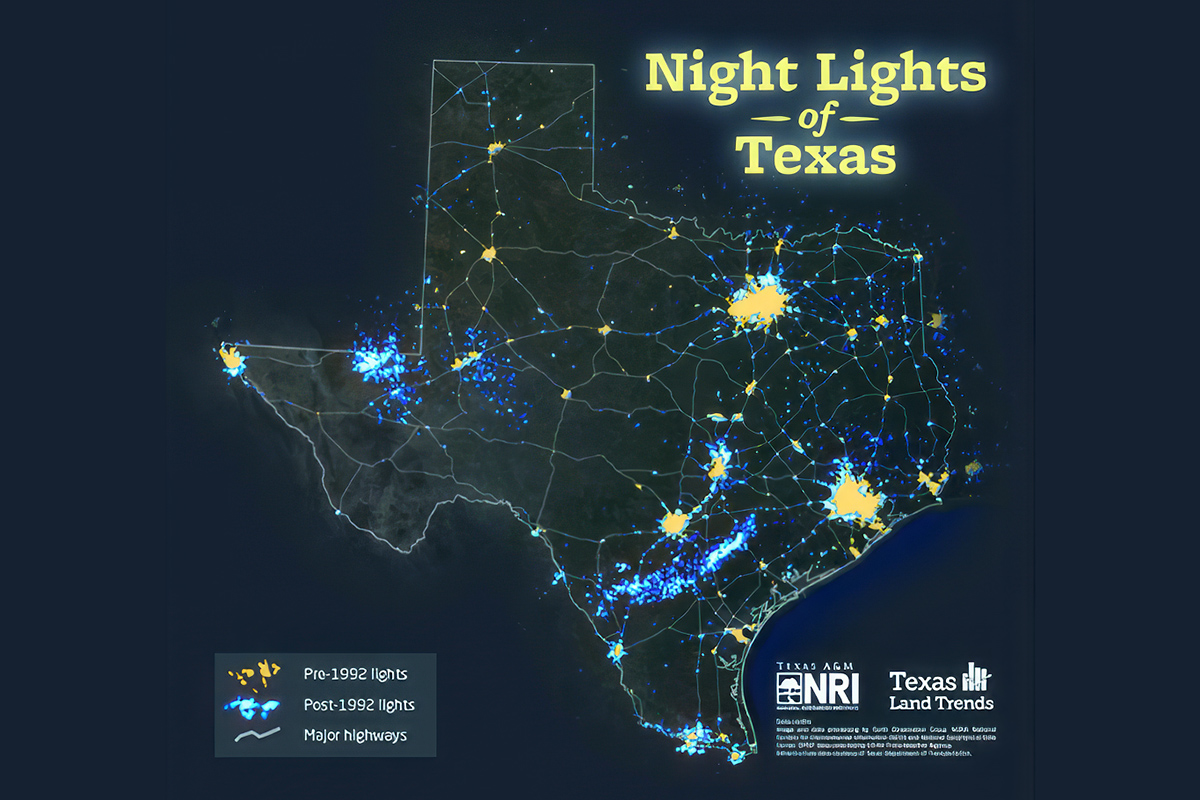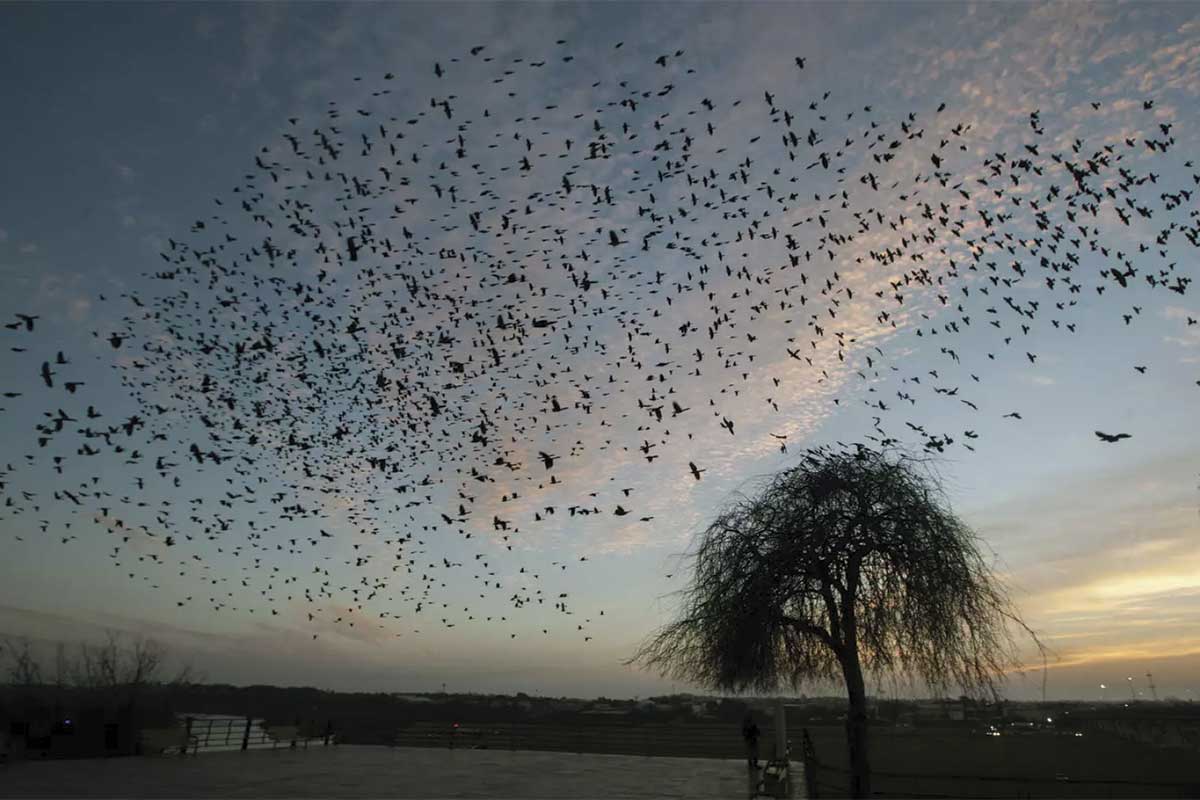Simple solutions to reduce light pollution at home can protect birds migrating south for the winter while also reducing your electricity bill.
According to Audubon Texas, an environmental organization dedicated to the conservation of birds and their habitats, nearly 2 billion birds navigate Texas skies during spring and fall migrations. The Houston and Dallas metropolitan areas are among the most dangerous cities in the U.S. for migratory birds. Why? Artificial light.
Most migratory birds journey at night—80% of birds use the moon and stars for their migration patterns.
Like the explorers in history books who charted unknown lands and waters, birds depend on astronomical signs to navigate. Human interference threatens the cognitive compass of our winged friends.
Birds are attracted to and disoriented by artificial lighting. When traveling at night, these aviators are drawn to light sources and can exhaust themselves flying around confused. Exhaustion leaves them vulnerable to urban threats.
In a single week in 2017, nearly 400 birds were drawn to a Galveston skyscraper’s floodlights, colliding with its windows. The Lights Out program helps reduce these incidents by protecting the night sky from light pollution during migratory seasons.

Birdcast

Texas A&M Natural Resources Institute
Cities large and small—including Houston and College Station—along the state’s migratory corridor participate in this biannual initiative.
From now until November 30, when fall migration ends, simple actions such as turning off unnecessary outdoor lighting and closing your blinds at night can reduce the stress and confusion birds experience on their journey.
Lights Out is a win-win for conservationists. Turning off lights between 11 p.m. and 6 a.m. also reduces energy consumption and can lower electricity bills.
About 30% of outdoor lighting is wasted, an electric bill of nearly $3.5 billion, the Department of Energy reported in 2012.
The nighttime glow of light pollution can be seen from space. While the world sleeps, residential and commercial properties waste kilowatt-hours and drive up the cost of electric bills with unnecessary outdoor lights.
The DOE recommends turning off or dimming exterior lights to save energy and extend the life of lightbulbs.
How To Go Lights Out
- Turn off nonessential lights from 11 p.m. to 6 a.m. during migration season.
- Avoid using landscape lighting in trees and gardens where birds might nest.
- Follow the friendly dark-sky lighting practices in the graphic above for essential outdoor lighting.


